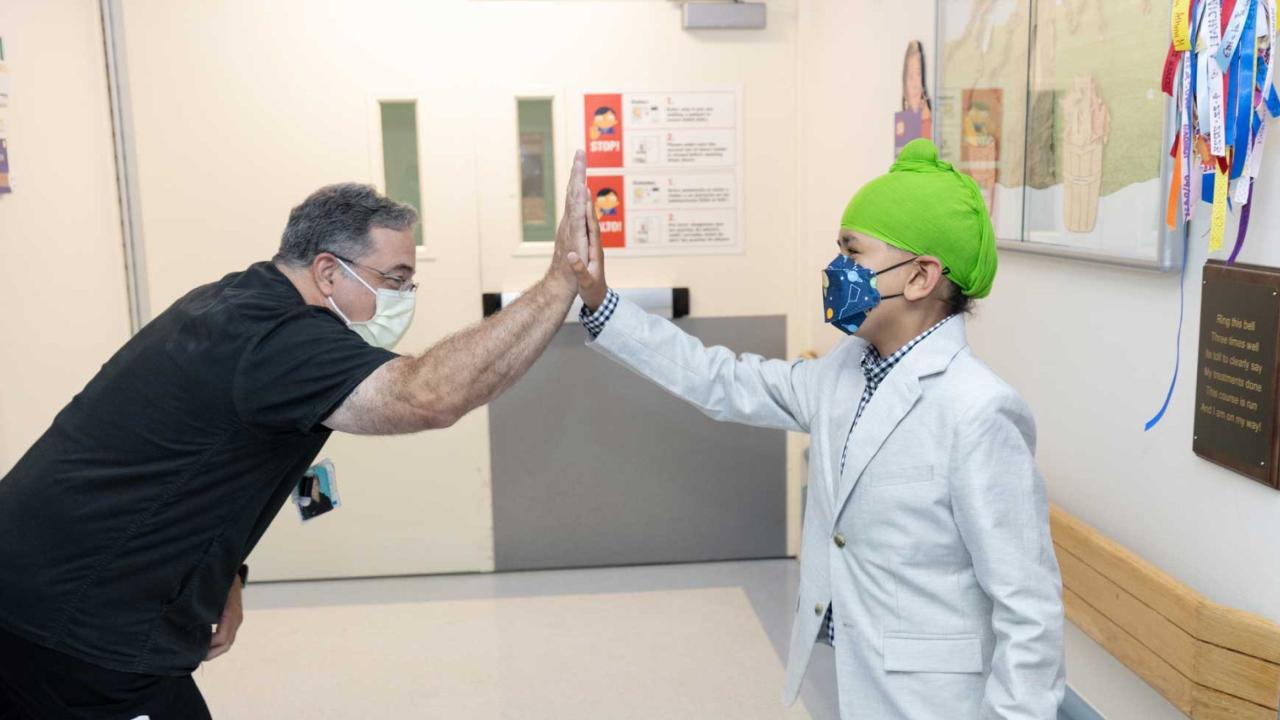
When Manvir Guleria was first diagnosed with neuroblastoma, he was a frustrated 9-year-old who didn’t know how to handle the painful treatments and long hospital stays that resulted.
Manvir’s family spent more days than they could count at UCSF Benioff Children’s Hospital Oakland due to the cancer – which develops in immature nerve cells, often in young children. He underwent a complicated tumor removal surgery, nine rounds of chemotherapy, two bone marrow transplants and several immunotherapy treatments – often spending 30 straight days in the hospital.
“At first Manvir was very angry and withdrawn, but after he started working with the BEST team, he took everything much more in stride and made connections with people at the hospital, which made it all less lonely,” said Manvir’s mom, Pawan.
She credits the UCSF Benioff Oakland Braddock Emotional Support Team (BEST) with helping him better manage the many hospitalizations, tests and procedures he endured over the past two years. BEST provides mental and behavioral health coping support care to pediatric patients and their families, so they have the tools and resources to deal with the emotional strain and physical pain of their critical and sometimes life-threatening blood and cancer diagnoses.
“Medical treatments these young patients receive can be quite traumatic, especially for those facing life-long or significant illnesses,” said Dina Hankin, PhD, a psychologist and BEST’s clinical coordinator/manager. “We minimize the long-term traumatic impact for patients and their families. We help them manage and cope with typical emotional responses to atypical situations. For younger patients, we use play – like special board games and dolls and role-playing. And for other older patients and their families, it’s typically talk therapy.”